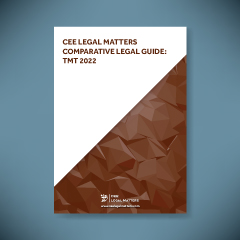Contributed by Drakopoulos.
1. Legal framework for writing and electronic contracts
a. What are the requirements in your jurisdiction to consider a document to be in writing? Are there any formal/technical requirements?
Under Greek law, it is required that a document bear the handwritten signature of its issuer (Article 443 of the Greek Code of Civil Procedure (GCCP) and Article 160 of the Greek Civil Code (GCC)). Also, the Greek Criminal Code seems to enrich and clarify the aforementioned definition of a written document, stating that any writing intended or likely to prove a fact having legal effect may be qualified as a document.
Furthermore, as per Article 444 of the GCCP, the following are also considered to be private documents: i) the books kept by traders and professionals under commercial law or other provisions, ii) the books kept by lawyers, notaries, bailiffs, doctors, pharmacists, and midwives under the applicable provisions, iii) photographic or cinematographic representations, voice recordings, and any other mechanical representation, which is deemed to include also electronic documents. Therefore, Greek law recognizes the fact that technology affects all kinds of transactions and does not remain impassive by these developments.
b. Are electronic documents [e.g., an email] per se considered to be in writing under your law?
In general, according to the Greek legal framework, an electronic document is defined as a set of data records on the magnetic disk of a computer, which is printed on the basis of program instructions in a human-readable manner, either on the screen of the machine or on its attached printer. Article 15 of Law 4727/2020 states that electronic documents are mandatorily accepted by public sector bodies as well as by the courts of all instances, provided that they have been signed by means of a qualified electronic signature or qualified electronic stamp. Such a signature is necessary to qualify the document as signed via a handwritten signature. However, under Article 16 of the same law, an electronic document bearing any kind of electronic signature is considered to be a mechanical representation and, thus, a private document.
More specifically and with respect to e-mails, the e-mail address specified by each user in a unique way and its declaration in each transmitted message constitutes proof of the identity of the sender. Prior to Law 4727/2020, Greek case law had accepted that the unique e-mail address has the same nature as a handwritten signature, even if it does not have the traditional form of the latter. Therefore, the most important condition of the term “document” (the handwritten signature of the issuer) is fulfilled through the unique e-mail address, leaving no doubts that electronic documents are considered to be equal to traditional (i.e., handwritten) documents in Greece. The fact that the Greek legal system has fully recognized the existence of electronic documents is also confirmed by the acceptance of the electronic service of documents both for court and mediation procedures (Article 112A of the GCCP & Article 7 Paragraph 2 of Law 4640/2019).
c. What probative power paper and/or electronic documents have that are to be considered in writing?
The probative power of the paper and/or electronic documents is the same, provided that paper documents bear the handwritten signature of a physical person and the electronic documents are signed by a qualified electronic signature or qualified electronic stamp. The same probative value is recognized in case the documents are mechanical representations (e.g., e-mail), but under Article 16 Paragraph 2 of Law 4727/2020, the probative value of the electronic documents bearing a simple or advanced signature remains at the discretion of the court. As mentioned above, Greek courts have ruled that the legally certified copy of the e-mail sent, which is contained in the recipient’s hard disc, constitutes full proof that the statement included therein originates from the sender.
d. What are the general rules and requirements to conclude a contract electronically?
In general, the conclusion of an electronic contract requires all the necessary elements of a traditional contract under Articles 127 subs. of the GCC. In particular, the necessary elements are (i) a declaration of will of one party to enter into a contract and (ii) a declaration of acceptance of the proposal to enter into a contract by the other party.
What differentiates the legal dogma from the electronic environment is that the coincidence of these declarations of will is made electronically, through the unique e-mail address that proves the identity of each contracting party or an application having the same effect. Following the sending of an electronic message by one contracting party, the receipt of the declaration of will is deemed to have taken place when the message reaches the electronic mailbox of the other contracting party.
When it comes to e-commerce contracts, electronic contracts in Greece are regulated by EU Directive No. 2000/31 along with the respective Presidential Decree No. 131/2003 implementing the directive. By virtue of this legislation, it is fully accepted that in every EU member state, electronic contracts should be awarded the same legal status as paper contracts. The provisions of the aforementioned presidential decree permit the conclusion of contracts with electronic means, providing for three exceptions. More specifically, electronic contracts are not permitted when (i) the contract creates or transfers property rights to real estate assets, (ii) the contract by law requires recourse to the courts, public authorities, or professions exercising public authority, and (iii) the contract falls within the scope of family law or the law of succession.
e. Are there any sector-specific rules that define further requirements to conclude contracts electronically [e.g., contracting via an authenticated electronic channel, contracting via video chat, etc.]?
It is indisputable that the COVID-19 outburst that forced many more people to work from home has significantly reduced face-to-face business, and has triggered a growth in video conferencing. In particular, in the banking and finance sectors, the number of video (i.e., distance) interactions has sharply increased.
However, in Greece, there are no rules in force regulating further requirements, such as the use of video chat, in order to conclude a contract electronically. This may be explained by the preference of the Greek legal system for the written form of contracts for evidence purposes. The aforementioned facts do not necessarily suggest that, in Greece, means such as video chat or electronic channels are something completely unknown. The truth is that many administrative authorities are now serving citizens through video calls. For example, a Greek citizen may communicate through a video chat with an employee of the competent Tax Office in order to obtain a tax registration number. However, it must be clarified that under no circumstances does the aforementioned service equal to the conclusion of a contract.
It is strongly believed that in a few years, the Greek legal system will be mature enough to accept and regulate the conclusion of contracts via such means.
2. Digital signatures
a. Are there any laws regulating the use of digital signatures in your jurisdiction?
The use of digital signatures in Greece is regulated by Regulation 910/2014 of the European Parliament and of the Council of July 23, 2014, on electronic identification and trust services for electronic transactions in the internal market (Regulation 910/2014 or eIDAS), along with Law 4727/2020 on Digital Governance (transposition of Directives (EU) 2016/2102 and 2019/1024) and Electronic Communications (transposition of Directive (EU) 2018/1972), the latter applying to the public sector.
b. Is there any difference between the different types of digital signatures in your jurisdiction?
Under the eIDAS Regulation the following types of signatures are provided:
- “electronic signature” – data in electronic form which are attached to other electronic data or logically associated with other data in electronic form, and which are used by the signatory to sign;
- “advanced electronic signature” – a signature which must be uniquely linked to the signatory, be capable of identifying the signatory, and be created using electronic signature creation data that the signatory can, with a high level of confidence, use under their sole control and be linked to the data signed therewith in such a way that any subsequent change in the data is detectable;
- “qualified electronic signature” – a signature created by a qualified electronic signature creation device and based on a qualified certificate for electronic signatures.
As already mentioned, electronic documents which have a qualified electronic signature or qualified electronic stamp are mandatorily accepted by public sector bodies as well as by the courts of all instances, since the qualified electronic signature is equivalent to a handwritten signature. This does not necessarily mean that the other types of signatures are less important, because electronic documents bearing a simple or advanced electronic signature are freely admissible as legal evidence, while their probative value lies at the discretion of the court.
c. What probative power each type of digital signature has in your country?
As per Article 25 of the eIDAS Regulation, in conjunction with Law 4727/2020, an electronic signature has the same legal and probative power as a handwritten signature.
Before the implementation of the eIDAS Regulation, Presidential Decree no. 150/2001, through which the Directive (EU) 1999/93 was transferred into Greek law, had equalized the advanced electronic signature with the handwritten one, in the sense of giving it the same probative power. However, as provided under the eIDAS Regulation, the electronic signature shall not be denied legal effect and admissibility as evidence in legal proceedings solely on the grounds that it is in an electronic form or that it does not meet the requirements for qualified electronic signatures.
As already mentioned hereinabove, by taking into consideration that only electronic documents which have a qualified electronic signature or qualified electronic stamp are compulsorily accepted by public sector bodies as well as by courts of all instances, the qualified electronic signature is of higher probative value. This does not necessarily mean that other types of signatures are less important because as already mentioned electronic documents with a simple or advanced electronic signature are also admissible as legal evidence.
d. Are there any specific groups of people that are required to have digital signatures [e.g., attorneys, notaries, government officials, etc.]?
Although there is no explicit provision in Law 4727/2020 requiring a specific group of people to have an electronic signature, Article 17 of the same law provides that the electronic circulation of documents within public bodies cannot take place without an advanced or qualified digital signature or stamp of the competent body. This provision may imply a requirement for digital signature when it comes to government/ administrative bodies. Moreover, lawyers also need a qualified digital signature in order to file writs electronically.
e. Are non-personalized digital stamps recognized in your country with probative power [e.g., digital stamps used by companies, government, or administrative bodies]?
Non-personalized digital stamps are not recognized under Greek law and therefore their probative value remains to be examined at the discretion of the courts.
3. Digital archiving
a. Are there any laws regulating digital archives and digital archiving in your jurisdiction?
Article 20 of Law 4727/2020 as well as Presidential Decree no. 25/2014, which applies only to the public sector, regulate digital archiving by public sector bodies. There is no relevant legislation with respect to the private sector.
b. What are the main legal and technical requirements to digitally archive documents?
The basic principles of digitally archiving documents are security, integrity, authenticity, confidentiality, accessibility, legibility, and quality.
In particular, according to Presidential Decree no. 25/2014:
- Electronic documents shall be organized and classified into relevant groups by the institutions obtaining them on the basis of the functions or activities of each institution in order to ensure their optimal access, retrieval, management, and final disposal;
- any electronic document filed in an electronic folder automatically acquires the properties and characteristics of the folder to which it belongs;
- the content, structure, and metadata of electronic documents from the moment they are archived until the completion of the process of their clearance shall remain the same for the entire retention period, as defined for paper documents.
c. Is there any difference in your country’s regulations between the digital archiving of paper and electronic documents?
Under Presidential Decree no. 25/2014, which is also applicable to paper documents, an additional requirement for the archiving of paper documents shall be their prior digitalization.
Other than that, no other differences arise from the legislation in force.
d. Is any third party required to participate in the process of digital archiving in your country [e.g., a trusted service provider, government / administrative bodies, etc.]?
The process of digital archiving within the public sector, as expressly provided for by Article 20 of Law 4727/2020, is carried out by an authorized (for this purpose) body of the public sector.
e. Are there any sector-specific requirements and rules for digital archiving [e.g., archiving both the software and the related data to retrieve information in the financial sector]?
The archiving of Armed Forces’ documents constitutes an exception to the general rule that paper documents must be destroyed five years following their digitalization.





